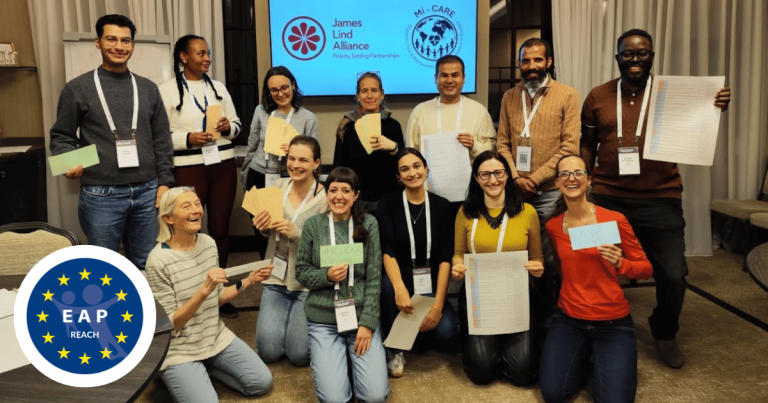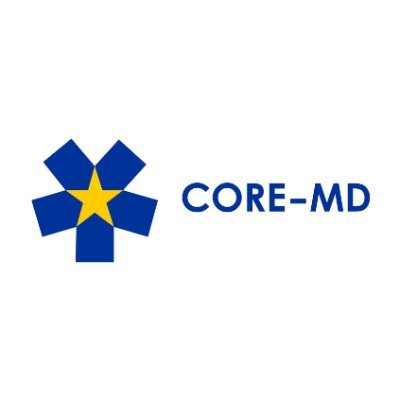REACH SAG – Winter Meeting 2024
December 16, 2024

“Nothing about us, without us, is for us.”
– The spirit of REACH continues to inspire progress.
The REACH EAP Strategic Advisory Group (SAG) convened for an internal, full-day session on 5 December 2024 ahead of the EAP Winter Meeting in Brussels. The internal discussion brought together 15 participants, setting the stage for further progress on the group’s initiatives.
The following day, the EAP Winter Meeting welcomed over 80 attendees, underscoring the broad engagement and shared interest in advancing paediatric healthcare across Europe.
Focus on the Mi-CARE Project
The centrepiece of the REACH discussions was the Mi-CARE Project, the group’s inaugural initiative in partnership with the James Lind Alliance (JLA). This ambitious project aims to identify and prioritise unanswered research questions related to paediatric migrant health in Europe, ensuring that the concerns of migrant children, adolescents, caregivers, and healthcare professionals are heard and acted upon.
Follow the link below to participate in the MiCare Survey! Help us Gather 300 responses before 31 Dec 2024!!
Key Discussions and Outcomes
The internal session on 5 Dec 2024 covered:
Progress of the Mi-CARE Survey:
- Over 1,200 research questions have already been collected from respondents in 20 European countries.
- Efforts to expand participation were discussed, focusing on reaching underrepresented groups through grassroots networks such as hospitals, schools, refugee centres, and local communities.
Preliminary Data Analysis:
- Initial analysis of survey responses has highlighted key themes, including access to healthcare, mental health support, and culturally sensitive care.
- The steering group shared progress on identifying and summarising recurring topics, laying the groundwork for the prioritisation phase.
Collaborative Strategies:
- Attendees explored how to leverage existing networks to boost survey responses.
- Ideas included increased promotion through EAP channels, local health systems, and community partnerships.
Future Planning:
- The group confirmed the second survey for March 2025 and outlined strategies for sustaining engagement and collaboration.
- Emphasis was placed on building synergies with ongoing paediatric health initiatives across Europe.
A Vision for Equitable Healthcare
The REACH Dream for 2025
Dr. Julia Brandenberger, Chair of REACH SAG emphasised the importance of collective effort in achieving equitable healthcare for migrant children and adolescents.
The Mi-CARE project is a pioneering step in breaking down research silos and fostering a truly inclusive healthcare agenda driven by the voices of those it serves.
To participate in the Mi-CARE survey or learn more, visit the EAP website. Together, we can make a lasting impact on the health and well-being of migrant families across Europe.


